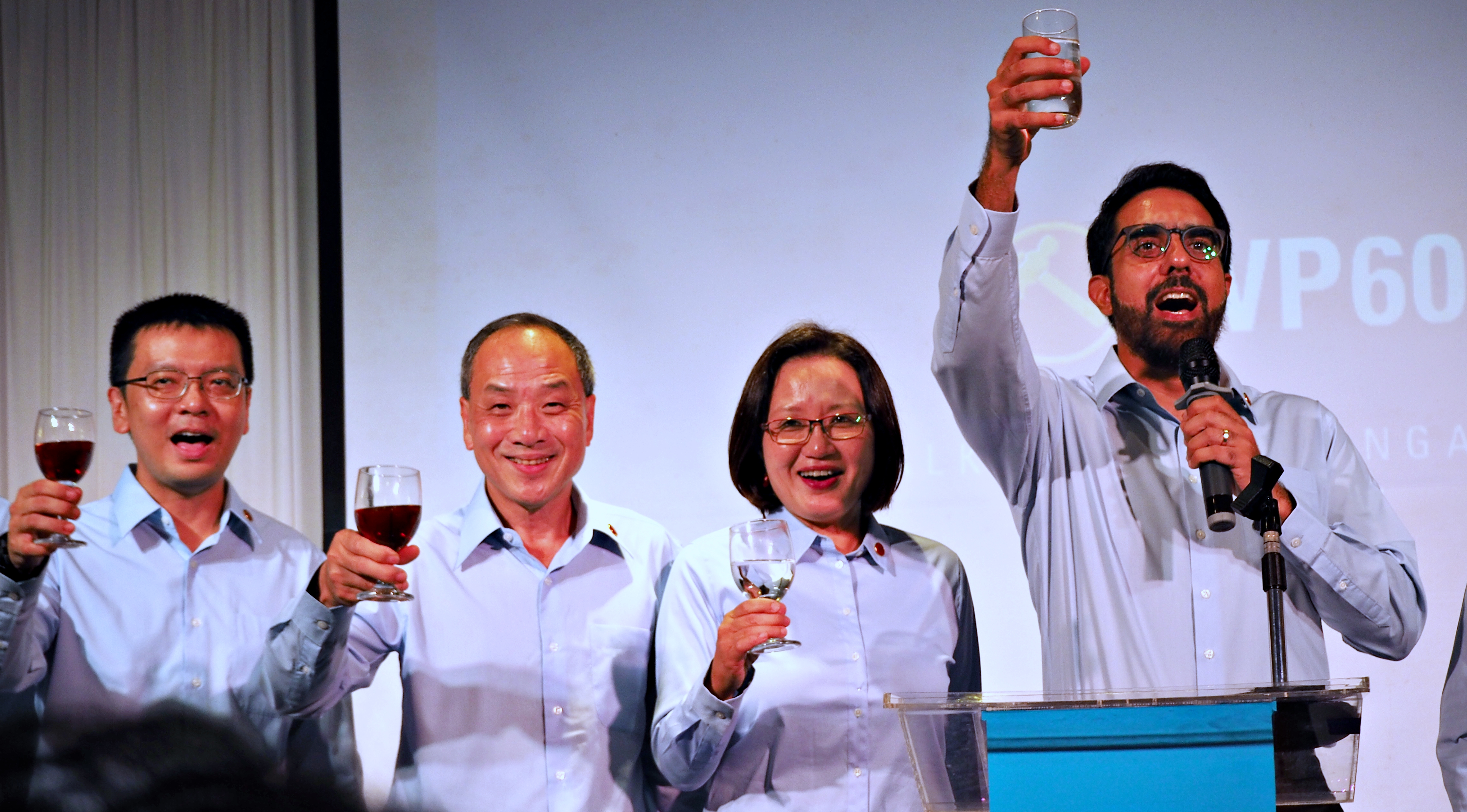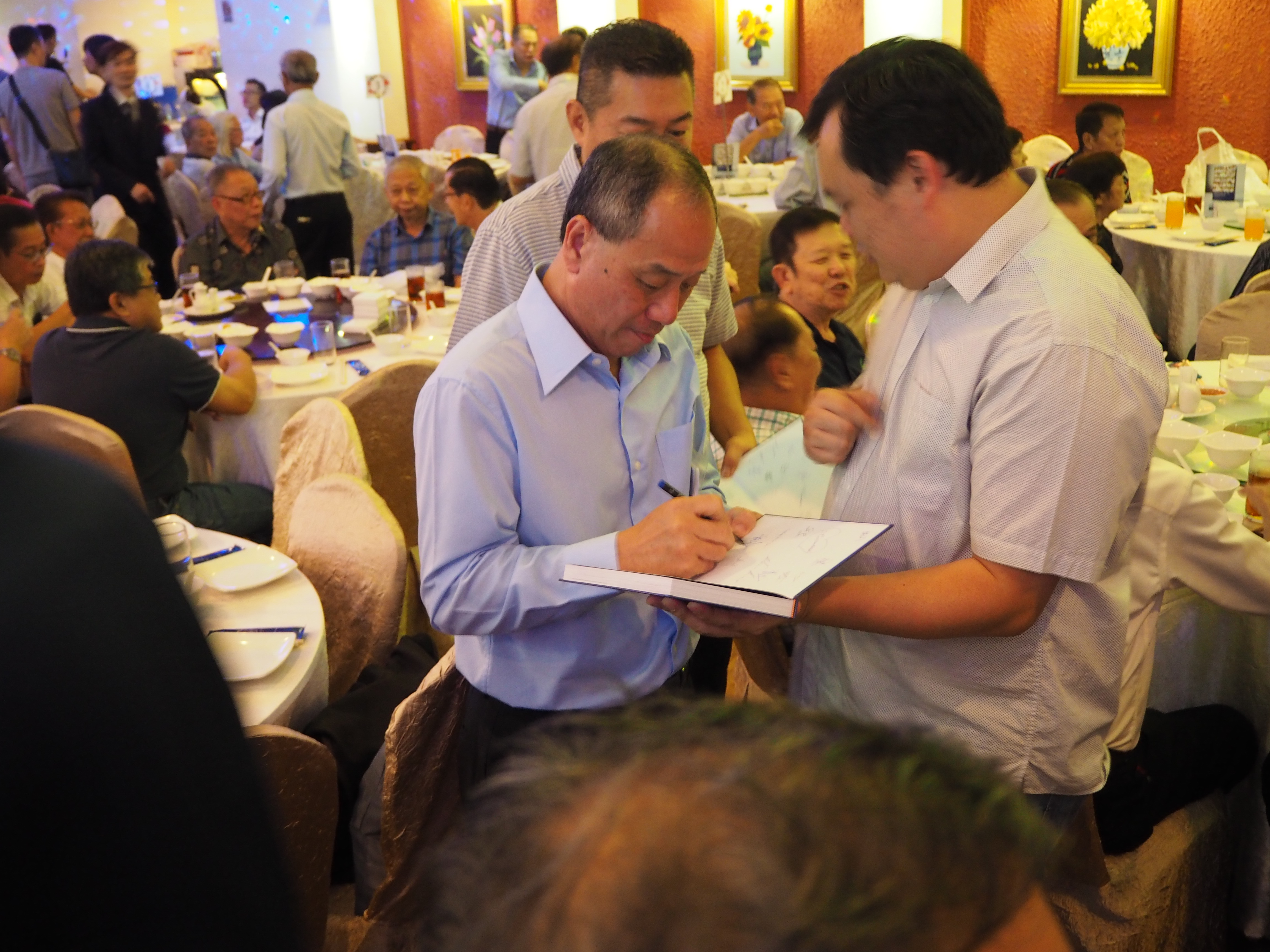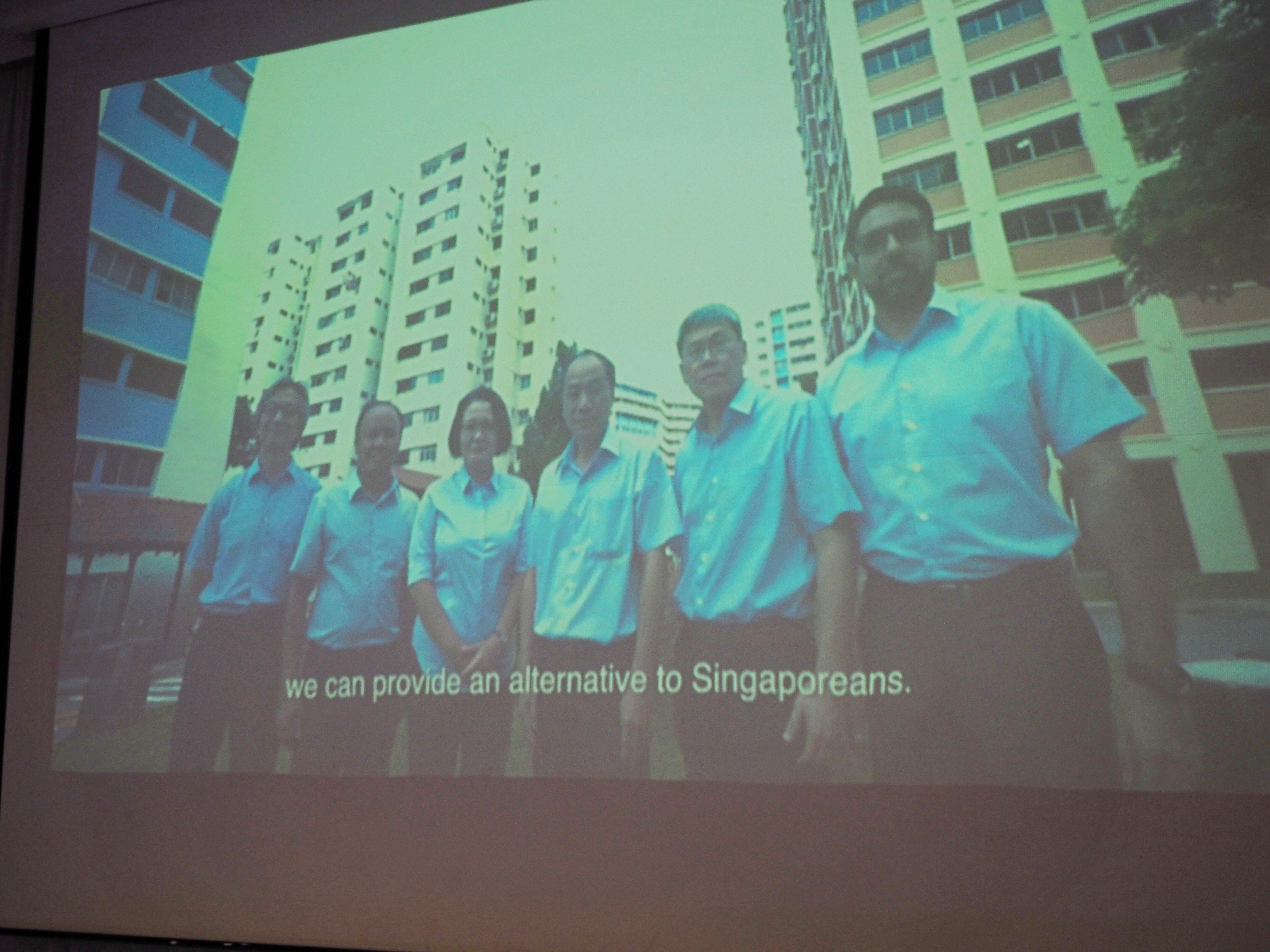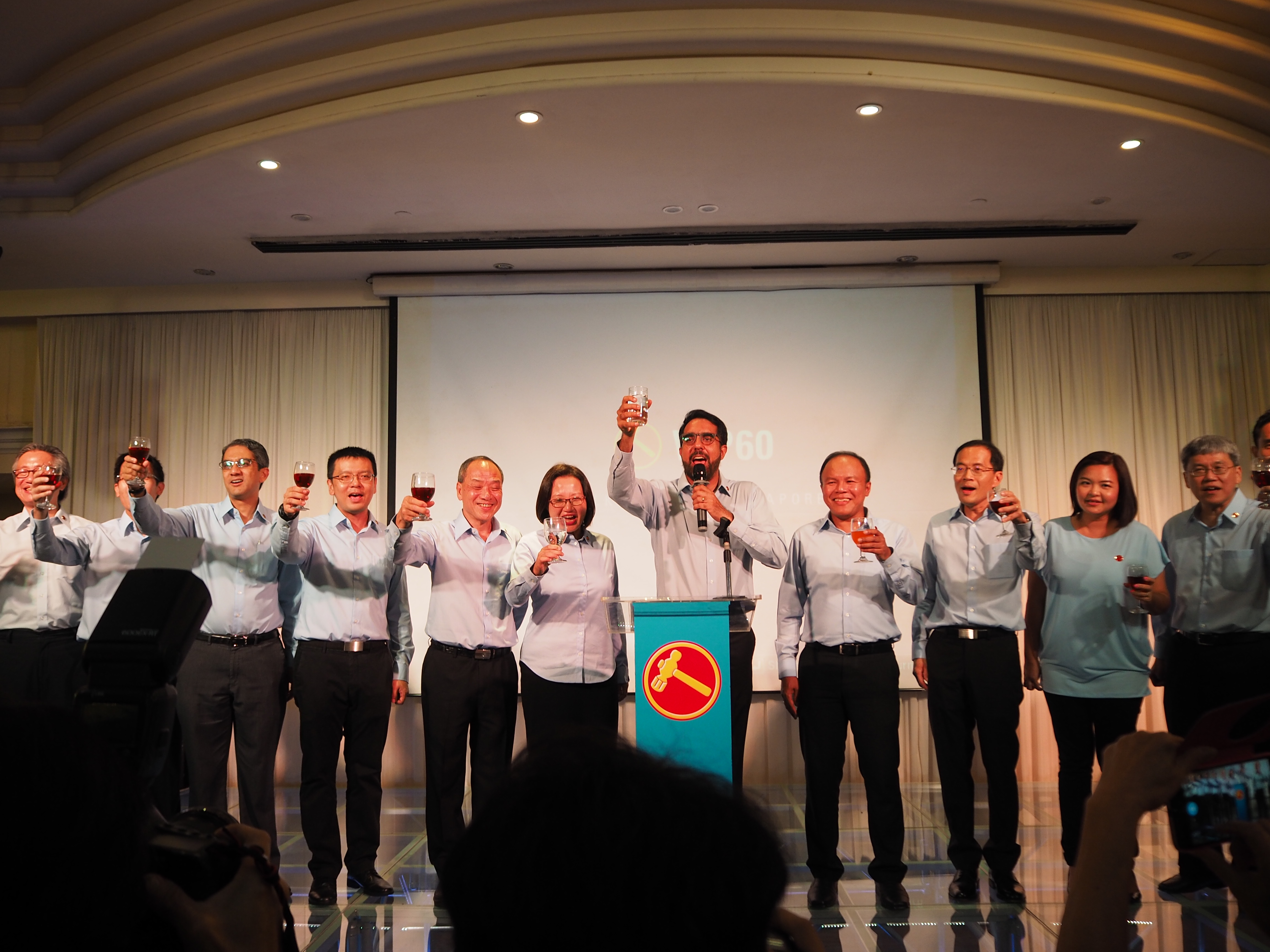The Workers' Party marked its 60th anniversary with a celebratory dinner last night.
In front of more than a thousand guests and supporters, Party Secretary-General Low Thia Khiang announced his decision to step down from the party leadership at its next Central Executive Committee (CEC) election.
Here are four takeaways we have after attending the event:
1. WP will be led by a new Secretary-General in the next GE
Low has been WP's Secretary-General since 2001. His announcement last night is the first time he has set a time frame for WP's leadership renewal at the top.
This means that a new leader of the party is set to emerge from its next CEC election next year.
In the unlikely event that the GE is called before their CEC election, for the first time in nearly 20 years, a new WP Secretary-General will lead the party to contest the next election that is due by 2021 or earlier.
All eyes are now on the individuals who are in the running to take over from Low.
Aljunied GRC MP Pritam Singh, who was named Assistant Secretary-General in Jun. 2016 (a post that had been vacant since 2006), is seen as the front-runner to take over the reins of the party.
But who can forget 2011 GE star candidate Chen Show Mao, who surprisingly mounted a bruising challenge for the top post back in May 2016.
Party chairman Sylvia Lim had described in her speech last night, how WP has transformed from a weak party with an under-strength leadership to one that has "healthy contests" for leadership positions within the party.
There will be considerable interest in how the biggest opposition party in Singapore manages its leadership transition.
Given the potential of a lack of consensus on leadership succession, Lim's assessment of the dynamics within the party will most likely be subjected to scrutiny.
[related_story]
2. Moving away from personality politics: Team WP
In his interview with the WP60 anniversary book Walking With Singapore, Low had recounted how he worked hard to steer the party away from the personality-driven politics that had defined the party for many years.
For example, passionate WP supporters now chant "Workers' Party" instead of his name, reflecting a change in mentality to that now focuses on the party.
It is notable that he did not mention any names last night in his speech. Instead, the focus was on "younger leaders" who have formed a "cohesive team":
"Today, the Workers' Party has a new breed of younger politicians who are well-positioned to take over the party leadership. These younger leaders have formed a cohesive team, and they connect well with our growing party and grassroots networks, which are made up of diverse members and volunteers, reflecting our diverse society.
It is time for these younger leaders to step up to the steering wheel. Remember that the Workers' Party is just a vehicle for the voice of the people to be heard. This voice is getting complex and more diverse. We now have a team of younger leaders who are ready to drive the party forward, to continue this walk with Singapore."
 Photo by Tan Guan Zhen
Photo by Tan Guan Zhen
The focus on the party, and not any individual leader was also highlighted by Lim in her speech:
"We now have an organization that will survive beyond the personalities of any individual leader. An organization for the future."
Low has been the public face of WP for more than three decades. As the countdown to his retirement from WP's leadership begins, perhaps the key question is: Will the new team of WP leaders be able to make a sufficiently strong impression in the eyes of the public to truly represent the dawn of a new era in the party?
 Photo by Tan Guan Zhen
Photo by Tan Guan Zhen
Judging by what we saw yesterday at the dinner and the book launch, we all know who's the star in WP.
3. No clear targets were set for the next decade...sort of
Low said that he had two objectives when he became the Secretary-General in 2001, which was to ensure the renewal of the party and make electoral progress.
He had achieved the latter in the historic win in 2011, when the team led by him achieved a breakthrough by winning a GRC contest, which was also a goal he had explicitly set at WP's 50th anniversary dinner in 2007.
Last night, there was no talk of targets or milestones for the next decade.
But an interesting anecdote by Pritam in his speech, revealed a figure that may well become the next milestone that WP aspire to -- 15% of the seats in the parliament, so that WP can send a contingent to march at the National Day Parade.
Here's what he said:
"One rather creative idea (to commemorate WP60) was to make inquiries about whether the WP could send a contingent to march at this year’s National Day Parade.
The response that came from the NDP organizing committee was that there was an overwhelming response from over 30 social organisations and ours was not selected.
When we asked what was the selection criteria and eligibility to march at the NDP, we were told that this was confidential.
WP fielded a record 28 candidates in five group representation constituencies (GRCs) and five single-member constituencies (SMCs) in the last GE, just one shy -- if all 28 were elected -- of denying the PAP a two-thirds super majority required to amend the Constitution.The WP60 committee decided to leave the matter there. But as part of the WP60 anniversary book research, a little historical gem was unearthed.
Apparently, Mr JB Jeyaretnam had also asked the government if the WP could be represented by a marching contingent at the NDP shortly after he became MP for Anson in 1981.
The government replied formally, with then senior Parliamentary Secretary for Defence Mr Phua Bah Lee stating that any opposition party seeking to march at the NDP would need to have at least 15% of the seats in Parliament before it would be allowed to do so.
If the government sticks to its word, it looks like we still have some way to go yet."
Well, if Pritam's words were taken seriously, it certainly seems that the party has moderated its ambition for the next decade.
4. A confident WP seeking support as a viable alternative
More than four years ago, after WP's win at the Punggol East by-election, Low had declared publicly that the party was not ready to form an alternative government.
And now it seems that the party is no longer as conservative or reticent about its potential to become one.
This was what Low said in the WP60 anniversary book Walking With Singapore:
"I think we have managed to build a foundation of people for the party to take another step, or to evolve into the next stage of forming a potential alternative government. A lot of people don’t realise that for the party to be able to form an alternative government, you need the capability of the organisation of things. You got to have team-based operations in the first place. A structure that people can operate at. That is foundation. I think we do have that organisational foundation that people understand the operations. We can potentially upscale, but that depends on the support of the people as well."
Encumbered and burdened by the long running town council management issues which had impacted their party image and its performance at the last GE, WP knows it has to win back public confidence.
Last night, Lim announced that AHTC (Aljunied-Hougang Town Council) has now put in place a new integrated town council management software, "comparable to the systems used by other town councils.".
And perhaps the best portrayal of the cautious optimism of the party can be found in the emotive WP60 documentary trailer that was launched last night, where WP senior leaders shared their vision of "perhaps one day" what the party can do:
 Photo by Tan Guan Zhen
Photo by Tan Guan Zhen
Top photo by Tan Guan Zhen
Related Stories:
If you like what you read, follow us on Facebook, Instagram, Twitter and Telegram to get the latest updates.

